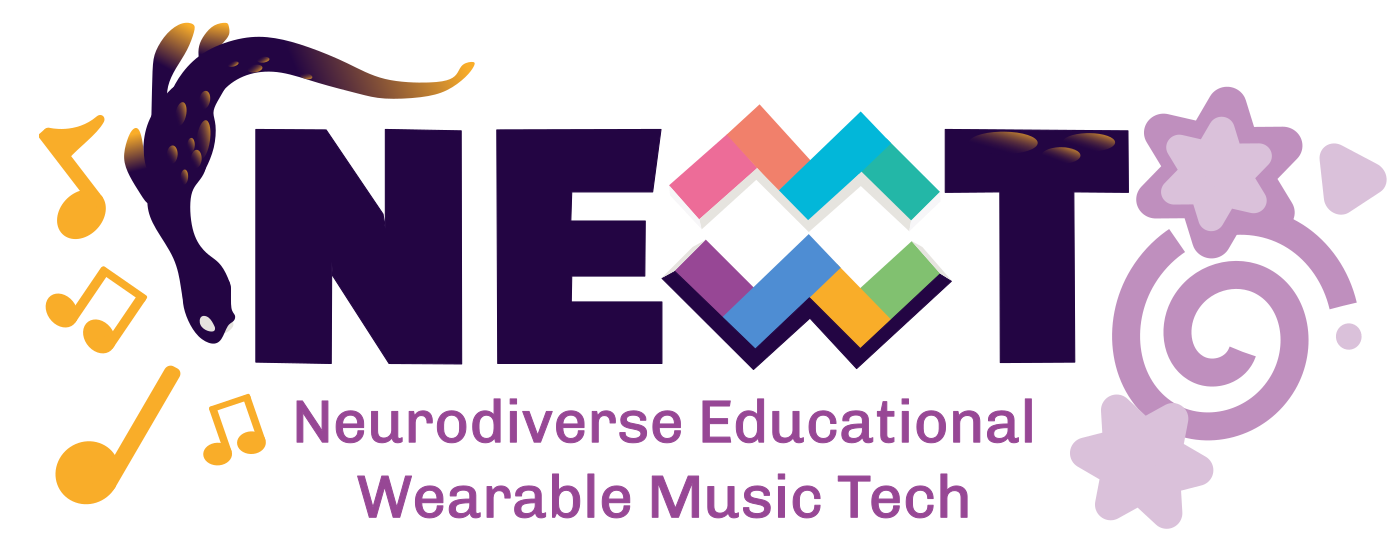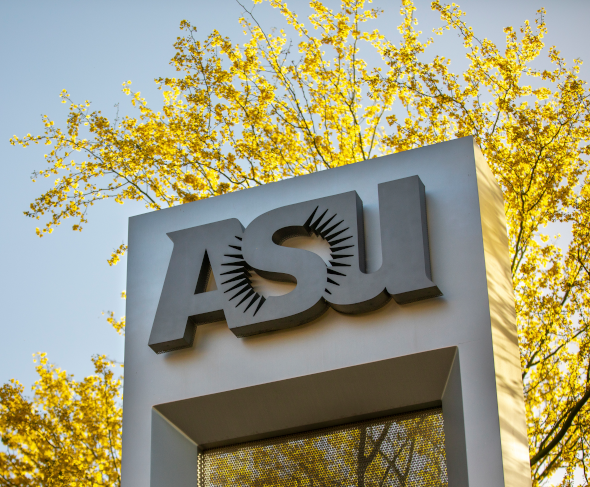

ASU - MLFTC & AME
Educators and researchers from ASU's Mary Lou Fulton Teacher's College and the school of Arts, Media and Engineering: - Sha Xin Wei: Principal Investigator (AME) - Seth Thorn: Co-PI (AME) - Mirka Koro: Co-PI (MLFTC) - Margarita Pivovarova: Co-PI (MLFTC) - Corey Reutlinger: Postdoctoral Researcher (AME) - Cole Mcleod: Research Specialist (AME)
Project Roadmap
The Neurodiversity Education Research Center and Arizona State University have partnered on a National Science Foundation-funded project. This Research Practice Partnership (RPP) explored computer science education as it intersects with disability and the arts. Working with embodied technologies and constructivist pedagogy, we strove to build rich, inclusive computational learning experiences for all students. The partnership extends beyond the university and school settings to include parents and business leaders.
This was a three-year project funded by an NSF Computer Science for All grant.
Research Questions
1. How can Telematic Embodied Learning (TEL) approaches, enriched with computational media (video and sound), foster computational thinking (CT) in computer science contexts when bolstered by neurodiverse teaching practices and pedagogies?
2. How do teachers who participate in TEL workshops modify and diversify their teaching practices of CT?
3. How can TEL approaches be adapted in other schools serving students with autism to develop CT?
4. How can TEL approaches augment the learning of CT in computer science by developing socio-emotional skills that will enhance future employment for neurodiverse students with autism?
First Year 2021-2022
Experienced teachers of neurodivergent middle school students (Teacher Fellows) worked alongside teacher educators and experts in computer science, media studies, and the arts to co-design wearable devices, music apps, and CT activities during four workshops. Teacher Fellows piloted the various iterations in their classrooms and received feedback from their students. Central to this work was the building, playing, and performing of wearable digital musical instruments.
Second Year 2022-2023
The research team, including Teacher Fellows, refined devices and apps while developing the Introduction to Computational Thinking Kit, which includes four CT lessons. Each lesson uses the 5E lesson plan format and includes extensions, expansions across content areas, and adapations. Lessons also include notes on how to develop neurodiverse workplace skills.
At the end of the year, Teacher Fellows introduced lessons to teachers and middle school students through interactive demonstrations at a culminating event called the Neurodiversity STEAM Fest, hosted at ASU’s Tempe campus. The STEAM Fest also included an exhibit hall with interactive tables from various STEAM and education focused organizations.
Third Year 2023-2024
The research team hosted six Teacher Fellow-led workshops during which 5-10 fourth through ninth-grade teachers learned about Neurodiverse Educational Wearable Music Tech (NEWMT). Teachers new to the project learned how to use the wearable music sensors (WMS), implement the co-designed lessons, and brainstormed ways for integrating what they learned into their specific teaching contexts.
At the end of the school year, Teacher Fellows again introduced lessons to new teachers, students, and family members through interactive demonstrations at the 2nd Annual Neurodiversity STEAM Fest, hosted at ASU’s Tempe campus. The STEAM Fest also included an exhibit hall with interactive tables from various STEAM and education focused organizations.
During the summer, two Teacher Fellows co-taught an ASU Digital Culture Summer Institute pre-camp called the Wearable Music and Computational Thinking Neurodiversity-affirming Summer Camp. Summer camp attendees were 18 neurodiverse 6th-9th graders. The majority of the campers reported having received accommodations in school, whether through an Individual Education Program (IEP), Section 504 of the American with Disabilities Act, gifted education, or a combination of these. Campers were introduced to NEWMT and developed their computational thinking skills in a neuro-inclusive environment.
This year, the research team also held several Introduction to Neurodiversity in the Workplace trainings, both in-person and online. Attendees learned about the need for neuro-affirming and neuro-inclusive workplaces and were interested in learning how to implement changes in their organizations.
